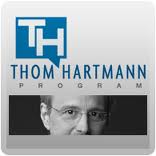Truthout
Video Posts

Newt Gingrich and the Real Saul Alinsky
Bill Moyers Essay: Newt's Obesession with Saul Alinsky from BillMoyers.com on Vimeo. TRANSCRIPT: BILL MOYERS: Time, now, for a word about a good American being …

|
On the News With Thom Hartmann: ALEC Running Amok, and More
You need to know this. The United States economy out-performed expectations – adding 243,000 jobs in January to lower the unemployment rate down to 8.3%. It’s the 23rd straight month …

“Gasland” Director Josh Fox Arrested at Congressional Hearing on Natural Gas Fracking (2)
The Academy Award-nominated filmmaker Josh Fox was handcuffed and arrested Wednesday as he attempted to film a congressional hearing on the controversial natural gas drilling technique known as fracking, …

Six Films on the Financial Crisis
Margin Call (2011) Margin Call, directed by J.C. Chandor, focuses on crises of conscience — and lack thereof — behind investment banking and the financial meltdown. Chandor’s …

|
On the News With Thom Hartmann: Arizona Republicans to Introduce Draconian Anti-Union Legislation This Week, and More
TRANSCRIPT: Thom Hartmann here – on the news…

Bill Moyers | John Reed on Big Banks’ Power and Influence (2)
John Reed on Big Banks' Power and Influence from BillMoyers.com on Vimeo. Click here to view transcript.

Bill Moyers | John Reed on Big Banks’ Power and Influence
Bill Moyers talks with former Citigroup Chairman John Reed to explore a momentous instance: how the mid-90’s merger of Citicorp and Travelers Group – and a friendly Presidential pen …

The Invisible War: New Film Exposes Rape, Sexual Assault Epidemic in U.S. Military
On the heels of a new military survey that the number of reported violent sex crimes jumped 30 percent in 2011, with active-duty female soldiers ages 18 to 21 …

|
Occupy DC: We’re Defending Our Dream
The statue of Civil War General James B. McPherson, which sits in the center of the square in downtown D.C. that bears his name, was used by Occupy D.C. …
